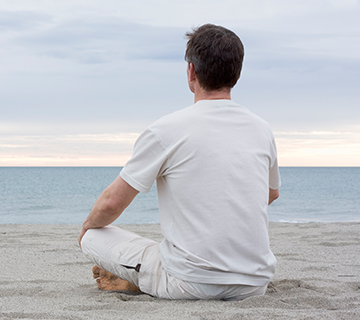The Link Between Mental & Physical Health

Ever had a stomach ache or feel nauseous when you’re nervous? Or get cranky when you haven’t had enough sleep? That’s because the endocrine system (which is responsible for bodily hormones) is closely connected to your brain. Changes in emotion release hormones throughout your body, which turn into physical symptoms. For example, headache, fatigue and stomach cramps might be signals of an underlying cause such as depression.
There are different ways that stress can affect your physical health. According to one study, people who experience depression are more vulnerable to poor diet and lack of activity. Untreated, depression can weaken the immune system and increase the risk for chronic illness. In fact, depression increases a person’s risk for developing diabetes by 41 percent.
Another common condition is anxiety. That feeling of unease or being overly concerned or worried about something is a normal reaction to stress. But excessive worrying could be a result of an anxiety disorder, where your fight or flight response is on constant alert. This releases stress hormones and can cause physical reactions like dizziness, irritability, muscle tension, nausea, poor concentration, shortness of breath, sweating and trembling.
What You Can Do
The good news is that taking care of your emotional health is just as manageable as taking care of your physical health. Here’s how:
- Stick to your gut. Since stress can wreak havoc on your stomach, it’s important to pay attention to your gut health. Studies have shown that a healthy gut can change behavior and anxiety levels. The average digestive system includes 100 trillion bacteria, which plays an important role in protecting our bodies from disease and mental health problems. To keep your gut healthy, avoid unnecessary antibiotic use and include a healthy mix of probiotic and prebiotic foods in your diet. You can also take a daily probiotic supplement.
- Get your zzz’s. Your body needs at least six hours of restful sleep to recharge. Sleep helps improve learning, memory and insight. A lack of sleep doesn’t just make you cranky, it can also slow down your reaction time and lead to mood disorders and anxiety. Having difficulty getting to bed? Try these 10 simple tips for better sleep.
- Work it out. Exercise doesn’t just take your mind off worries—it releases feel-good endorphins, too. While you exercise, your body releases natural cannabinoids and other brain chemicals. This enhances your sense of well-being and can help you gain confidence, be more social, and learn to cope with tough feelings in a healthy way.
- Schedule a “mental” along with a physical. When it comes time for your annual wellness exam, don’t forget your mental health! Consider visiting a mental health provider to discuss any issues you might have. It’s good to check in with yourself.
Don’t forget, you can earn rewards by completing goals related to reducing stress and feeling happier with the Online Health Coach. Are you ready to get started?


